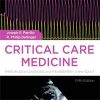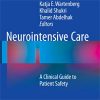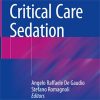Sedation in ICU patients – Need for Standardized Protocols
healthmanagement.orgA Johns Hopkins-led study on sedation practices in critically ill patients in a resource-limited setting finds that deep sedation, agitation, and benzodiazepines were independently associated with worse clinical outcomes. The study’s main objective was to determine the relationship between sedation status and 90-day mortality. Study results show that a greater percentage of days spent in deep sedation was associated with a fivefold greater odds of mortality, while agitation status had a 40-fold higher mortality; benzodiazepine usage was associated with a 41% higher odds of 90-day mortality. The results indicate that despite strong evidence that correlates sedation depth with worse clinical outcomes, most ICU patients were deeply sedated during their ICU stay.

















